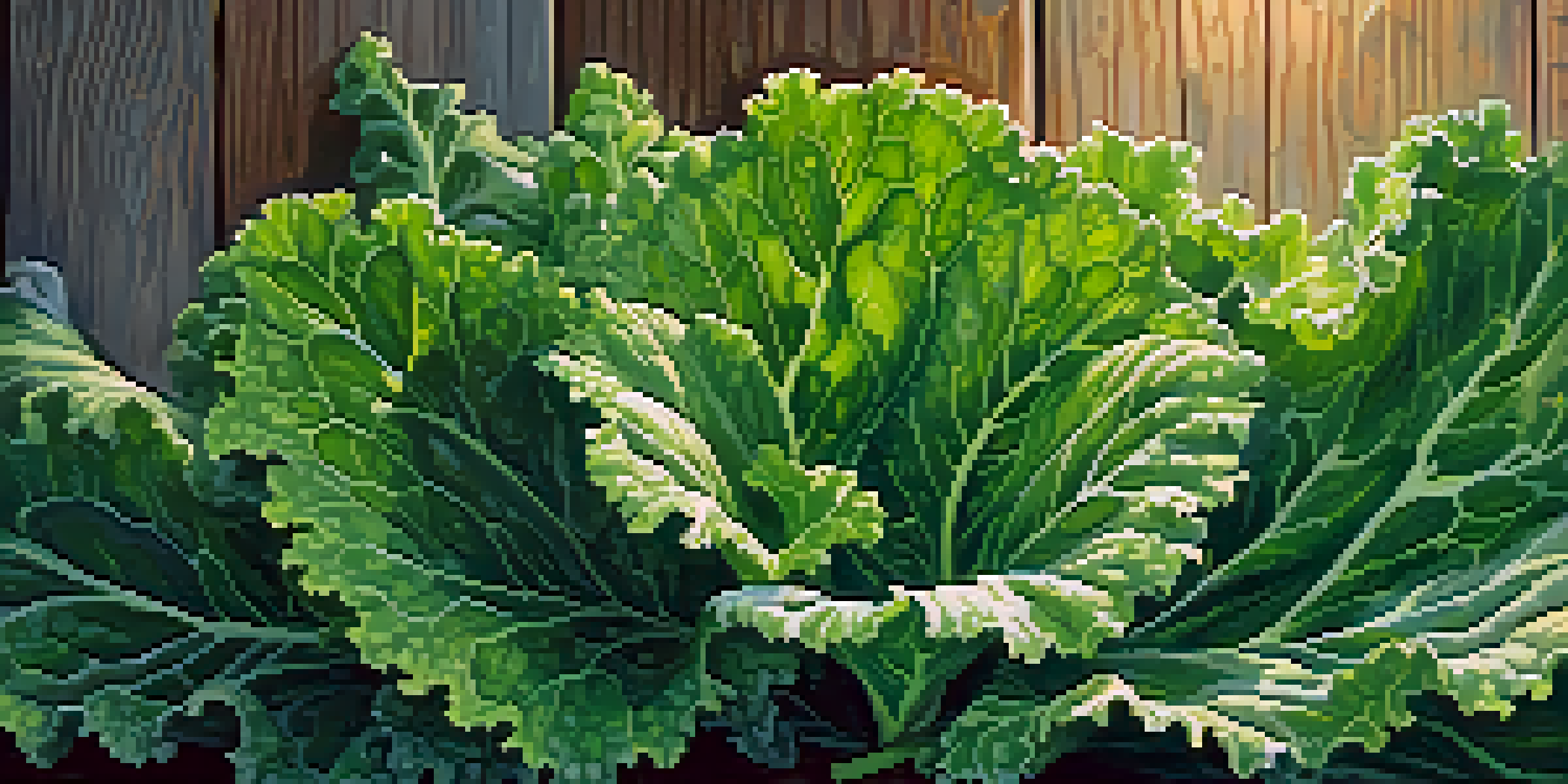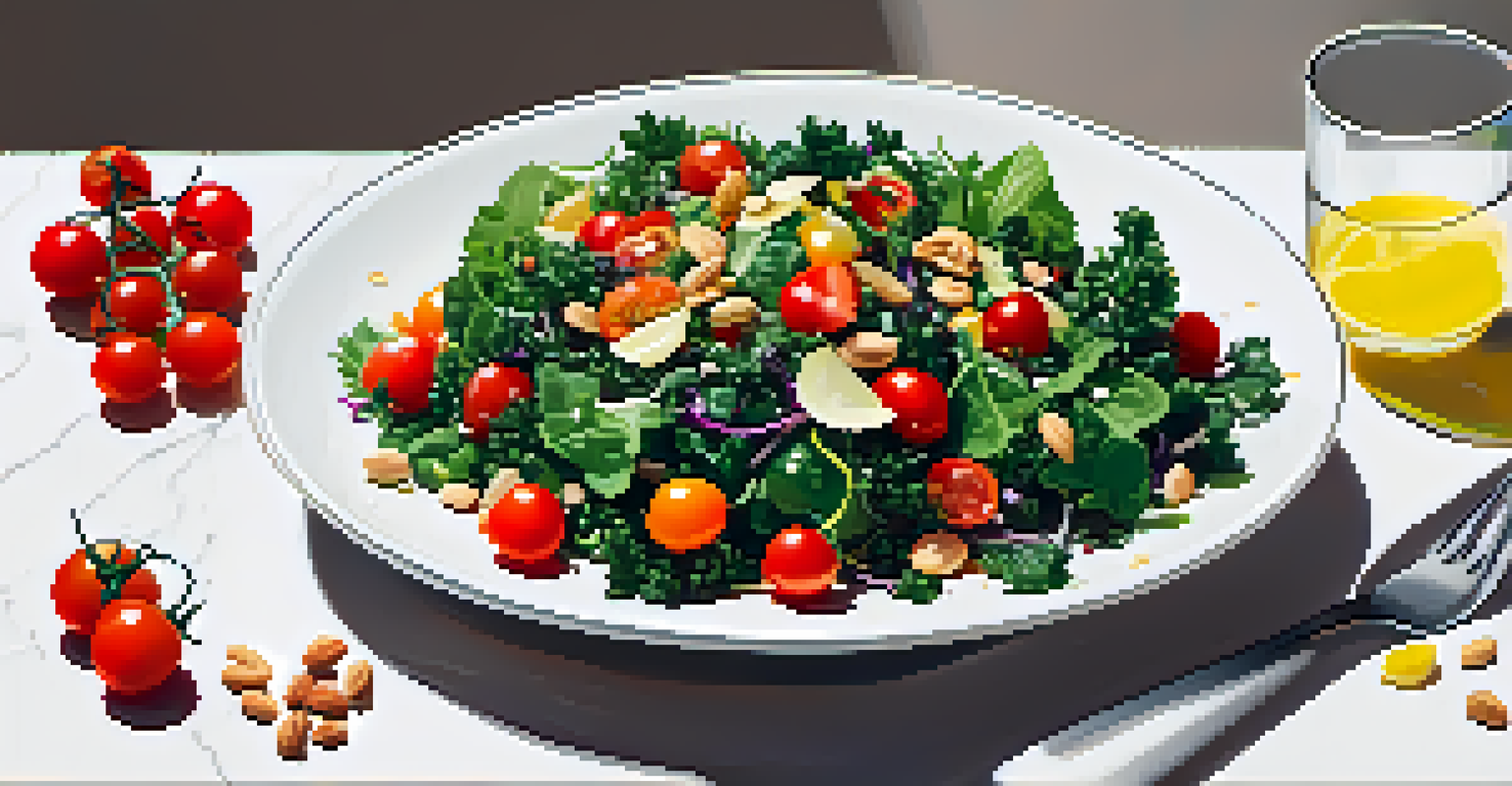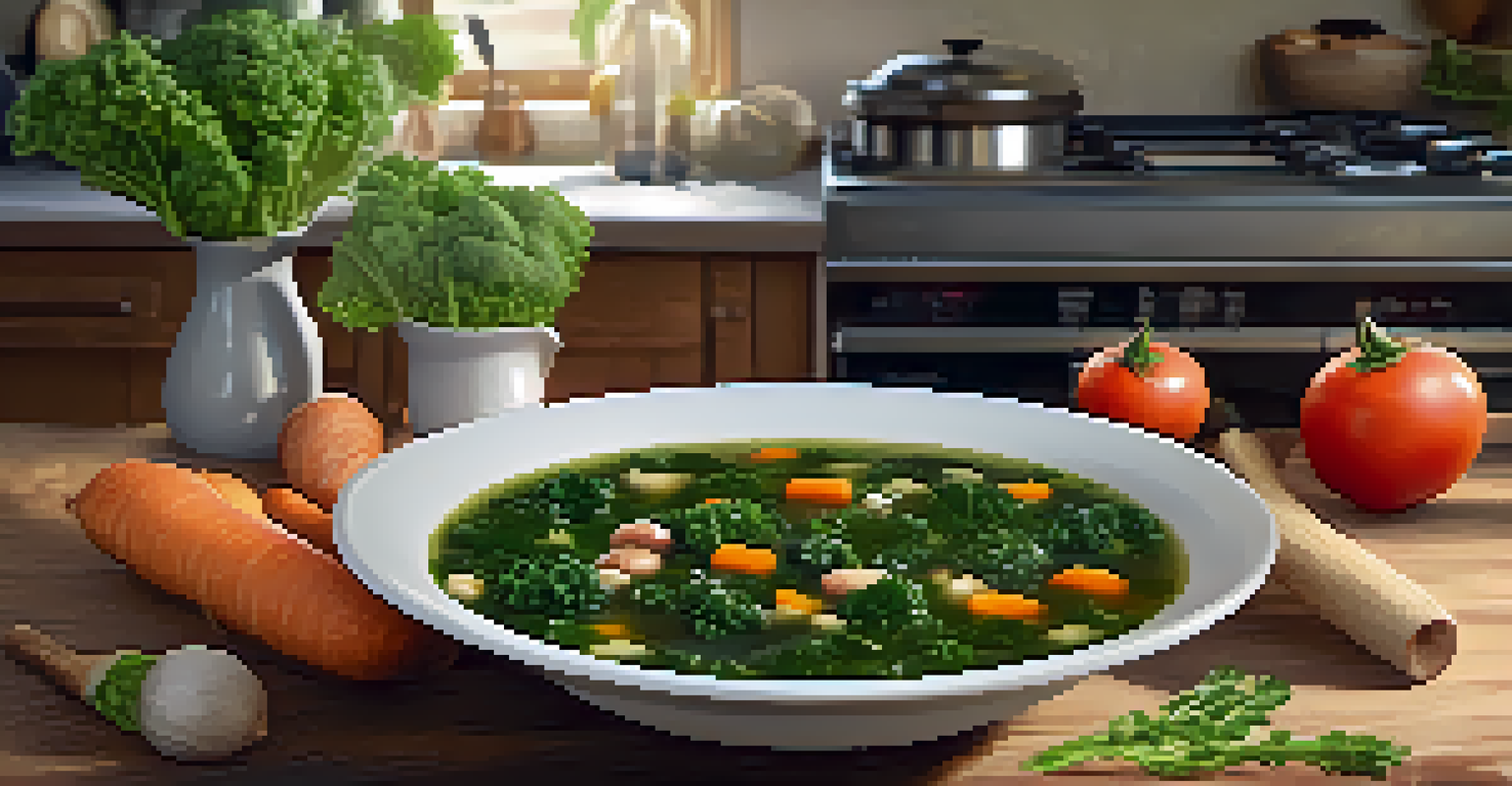The Power of Kale: A Superfood for Vegan Diets

What Makes Kale a Superfood for Vegans?
Kale is often hailed as a superfood, and for good reason. Packed with essential vitamins and minerals, such as vitamins A, C, and K, it provides crucial nutrients that support overall health. For those following a vegan diet, kale stands out as a versatile ingredient that can easily be incorporated into meals.
Let food be thy medicine and medicine be thy food.
In addition to vitamins, kale is rich in antioxidants, which help combat oxidative stress in the body. This is particularly beneficial for vegans who may not get enough antioxidants from other sources. By including kale in your diet, you're not just adding a leafy green; you're boosting your body's defenses against inflammation and disease.
Moreover, kale is an excellent source of fiber, which aids digestion and promotes a healthy gut. This is especially important for vegans, as a plant-based diet can sometimes lead to digestive issues. By making kale a staple in your meals, you can ensure you're getting enough fiber to support your digestive health.
Nutritional Benefits of Kale You Can't Ignore
Beyond being a nutrient powerhouse, kale offers specific health benefits that are hard to overlook. For instance, its high calcium content can help meet the needs of those on a vegan diet, where dairy is absent. Calcium is vital for maintaining strong bones and overall skeletal health.

Kale also contains iron, which is essential for transporting oxygen in the blood. Many vegans worry about getting enough iron, but incorporating kale into your diet can help alleviate those concerns. Pairing it with vitamin C-rich foods, like citrus fruits, can further enhance iron absorption.
Kale: Nutrient-Dense Superfood
Kale is rich in essential vitamins, minerals, and antioxidants, making it an ideal addition to a vegan diet.
Another remarkable benefit of kale is its potential to support heart health. The fiber, potassium, and various antioxidants found in kale can contribute to lower cholesterol levels and improved cardiovascular function. By adding kale to your meals, you're not just eating healthy; you're actively supporting your heart.
Easy Ways to Incorporate Kale into Your Meals
Adding kale to your diet doesn't have to be complicated. One of the simplest ways is to toss it into salads, where its robust leaves provide a satisfying crunch. You can create a delicious salad by mixing kale with your favorite veggies, nuts, and a zesty dressing.
Eating kale is a way to embrace a healthier lifestyle while supporting sustainability.
Another popular method is to blend kale into smoothies. Its mild flavor can be masked by fruits like bananas or berries, making it an easy addition to your morning routine. This way, you can enjoy a nutrient-dense drink that fuels your day.
If you're looking for something warm, consider sautéing kale with garlic and olive oil. This creates a tasty side dish that pairs well with grains or proteins. It’s a quick and flavorful way to enjoy the benefits of kale without much fuss.
Kale Varieties: Choosing the Right One for You
When it comes to kale, there are several varieties to choose from, each with its unique flavor and texture. Curly kale, the most common type, is great for salads and garnishes due to its ruffled leaves. Its robust nature makes it ideal for cooking as well.
Lacinato kale, also known as dinosaur kale, has a flatter, darker leaf and a slightly sweeter taste. This variety is perfect for stir-fries and soups, offering a different texture that some may prefer. Experimenting with different types can help keep your meals exciting.
Easy Ways to Enjoy Kale
Incorporating kale into meals can be simple, whether in salads, smoothies, or sautéed dishes.
Lastly, red Russian kale features tender leaves with a hint of sweetness and can be used raw in salads or lightly cooked. Understanding these varieties allows you to select the best kale for your dishes, ensuring you're not only eating healthy but enjoying what you eat.
Kale in Popular Vegan Recipes
Kale is a star ingredient in numerous popular vegan recipes, making it easy to enjoy its benefits. One beloved dish is kale chips, which are simple to make by tossing kale with olive oil and seasoning before baking until crispy. They serve as a healthy snack that satisfies cravings without the guilt.
Another favorite is kale and quinoa salad, combining these nutritious ingredients for a filling meal. Add some chickpeas, cherry tomatoes, and a lemon vinaigrette for a refreshing and protein-packed dish. This recipe is not only delicious but also visually appealing, making it perfect for gatherings.
For a comforting option, consider a hearty kale soup with beans and vegetables. This dish is not only warming but also allows the flavors of kale to shine through. It’s an excellent way to enjoy a nutritious meal on a chilly day.
The Environmental Impact of Choosing Kale
In addition to its health benefits, choosing kale can also have a positive environmental impact. As a leafy green that grows relatively quickly, kale requires fewer resources compared to many other crops. This makes it a sustainable choice for those looking to reduce their carbon footprint.
Moreover, kale can be grown in a variety of climates and conditions, making it accessible to many farmers. Supporting local kale producers not only boosts the economy but also promotes sustainable agriculture practices. Eating kale is not just good for you; it can also contribute to a healthier planet.
Kale's Environmental Benefits
Choosing kale supports sustainable agriculture and helps reduce your carbon footprint.
By incorporating kale into your diet, you're participating in a movement toward more sustainable eating. Each meal filled with this superfood is a step towards a more eco-friendly lifestyle, all while reaping the personal health benefits that kale offers.
Conclusion: Embracing Kale for a Healthier Vegan Lifestyle
Incorporating kale into your vegan diet can be a game-changer for your health. With its impressive nutritional profile, it's an easy way to ensure you're getting essential vitamins, minerals, and antioxidants. The versatility of kale means that you can enjoy it in various forms, whether raw, cooked, or blended.
As you explore the many ways to include this superfood in your meals, remember that small changes can lead to significant results. Whether you're a long-time vegan or just starting, kale offers a delicious and nutritious option to enhance your diet.

So, why not embrace this powerhouse of nutrition? By making kale a regular part of your meals, you're not only nourishing your body but also contributing to a more sustainable future. It's a win-win for both you and the planet.